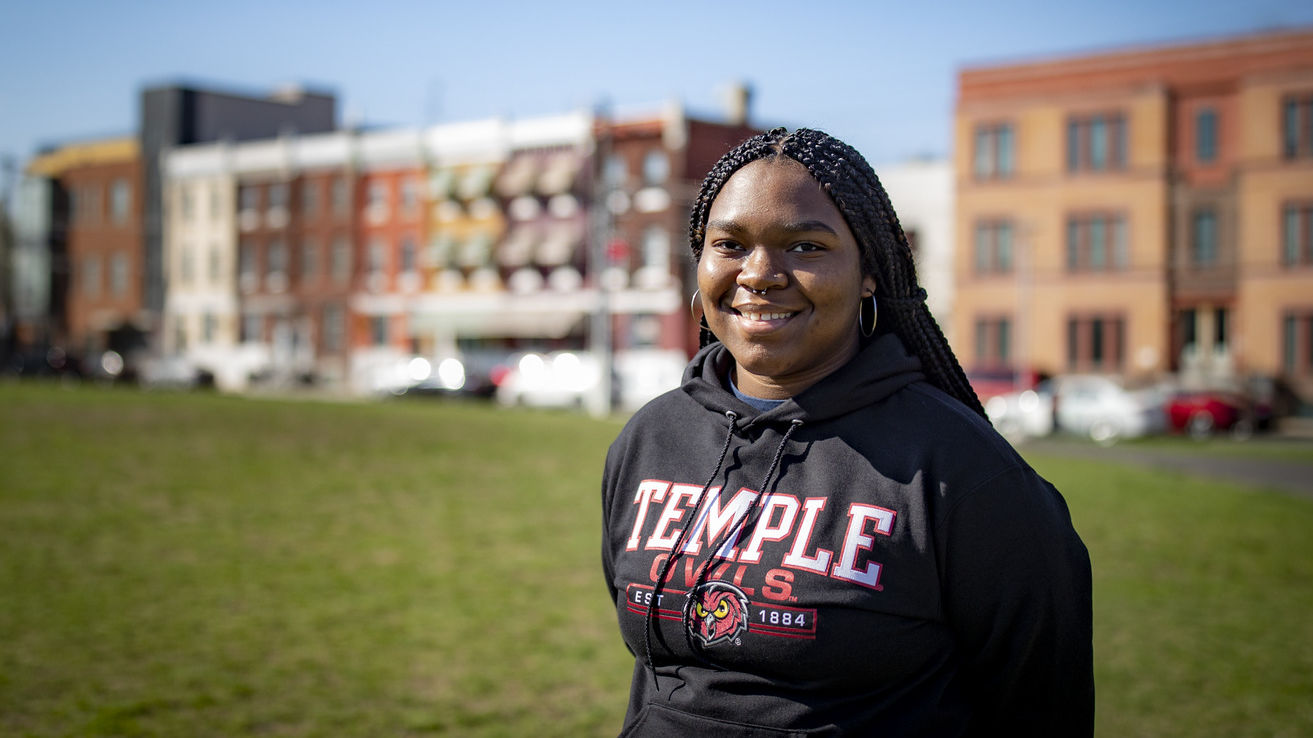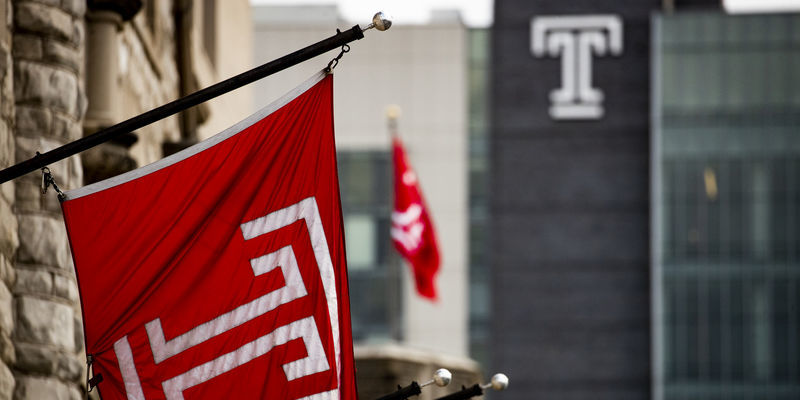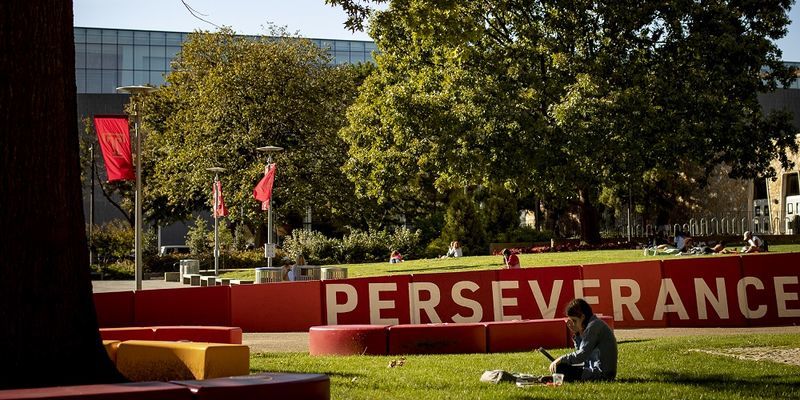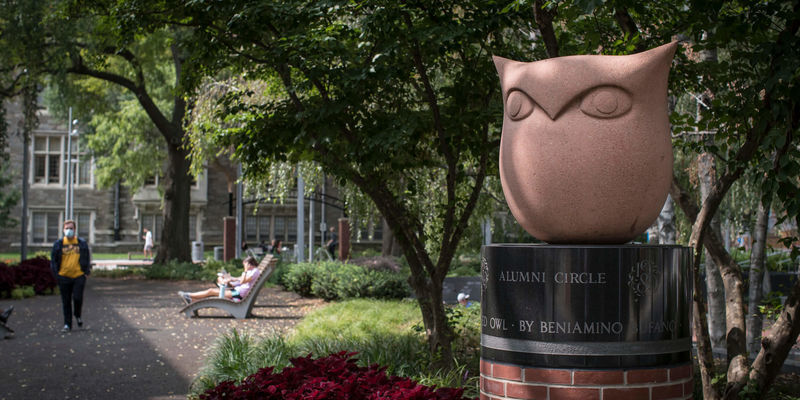Meet Anyae Scott, one of Temple’s first Cecil B. Moore Scholars
Local Simon-Gratz High School senior Anyae Scott is one of the first of 22 students selected for the Cecil B. Moore Scholars Program in its inaugural year. The program provides a new pathway for North Philadelphia students to attend Temple.

Anyae Scott, Class of 2025, a Simon Gratz High School student-athlete who enjoys playing rugby, was in the scrum of her life during her senior year, jockeying for position to not only get accepted into college, but to also receive a scholarship.
Scott, who was raised on 24th Street near Somerset Street in North Philadelphia, has dreamed of becoming a surgeon and knew the first step on that path is attending college. Growing up, she displayed a strong work ethic and dedication to her schoolwork, maintaining a 3.55 GPA in high school, taking weekend enrichment classes and participating in programs at Temple University.
Then, on March 1, Scott received an email that changed her life. It informed her that she was one of the first of 22 students to earn a full-tuition scholarship under Temple’s Cecil B. Moore Scholars Program in its inaugural year.
Immediately after learning about her acceptance to the scholars program, she shared the news with her mother, Deneen Jones, fraternal twin sister, Anais Scott and youngest sister, Aja Johnson, who each helped celebrate the achievement.
“I was excited and relieved that the financial part of attending college would be taken care of,” said Scott.
“My mom and sisters were super excited and screaming,” Scott laughed.
Developed by Temple and educational nonprofit Steppingstone Scholars, the Cecil B. Moore Scholars Program creates a pathway to Temple for students who live in Temple’s eight neighboring North Philadelphia ZIP codes—19121, 19122, 19123, 19125, 19130, 19132, 19133 and 19140—and attend the School District of Philadelphia high schools or charter schools.
The North Philadelphia native first heard about the program through Temple Upward Bound, a program designed to provide first generation, low-income students or students at academic risk with resources to help them succeed in college, including federally funded college access programs, weekday after-school tutoring and a six-week summer program that features a multiday trip touring college campuses.
Scott also took classes at the Community College of Philadelphia in a dual enrollment program that allows students from Mastery Charter High Schools, including Simon-Gratz, to earn college credits while they are still enrolled in high school.
She credits her success with having a skilled team of academic advisors who helped her apply to colleges, including LaToya Winkfield, director of Temple Upward Bound; Dominique Daniels, dual enrollment coordinator at Steppingstones Scholars; and Ellen Speake, program manager for the dual enrollment partnership at Mastery Charter Schools.
In addition to Upward Bound, Scott also participated in the Philadelphia String Project at Temple, a Boyer College of Music and Dance program that serves 65 to 100 beginning young string players from the Philadelphia area in a three-year program that meets weekly and incorporates group lessons and string ensembles. She played the violin in the program.
“Many of the Temple programs allow students safe spaces to study and provide good mentoring resources that help students develop life skills, social skills, professional skills and academic skills,” said Scott. “I also had a solid support system at home.”
Scott has a special relationship with her mother who was by her side throughout her life and journey to getting accepted to college.
“My mom has always been there for me and supported me through all the decisions that I made, whether she suggested them or not,” said Scott. “She was open to any school that I would have chosen and supportive of me playing contact sports like rugby.”
A factor in Scott’s decision to apply to Temple as an African American was the diverse and inclusive environment on campus and the university’s willingness to add new programs to help students.
“In addition to strong academic offerings, diversity was one of the things I was really looking for in a college,” said Scott. “I wanted to be in an area where there are a good amount of people that look like me.”
The scholars program is a part of Temple’s $1 million anti-racist initiative, announced in September 2020, that is expanding the Department of Africology and African American Studies, creating a Center for Anti-Racism Research and developing a bridge program for young people in North Philadelphia.
With the scholarship, Scott wants to major in biology at the College of Science and Technology, with the goal of attending Temple’s Lewis Katz School of Medicine after graduation. She hopes to fulfill her dream of becoming a surgeon in either trauma or obstetrics-gynecology.
“Members of my family have had medical challenges over the years and I want to help other people who go through the same things,” said Scott. “I want to help people find a way to overcome the different procedures.”
Leading up to the fall semester, Scott and the other program recipients will participate in a two-credit summer program, focused on reading, writing and math proficiency; building community with other scholars; learning wellness practices; and preparing to be on campus.
“I hope the programming will help strengthen the scholars’ connections to the campus, give them a sense of belonging, allow them to build social capital and encourage self-exploration,” said Paris Williams, assistant director of student engagement and access at Temple and the Cecil B. Moore Scholars program director. “Our programs will be facilitated in collaboration with departments across campus and outside of the university when appropriate.”
Scott believes that the new scholars program will help give future North Philadelphia students confidence that getting accepted to Temple is attainable.
“Knowing that I’m capable of earning something as big as a scholarship through the Cecil B. Moore Scholars is really motivating and it lets me know that I can do more in the future,” said Scott. “I learned to work hard, be patient, and to use the resources that are available.”


